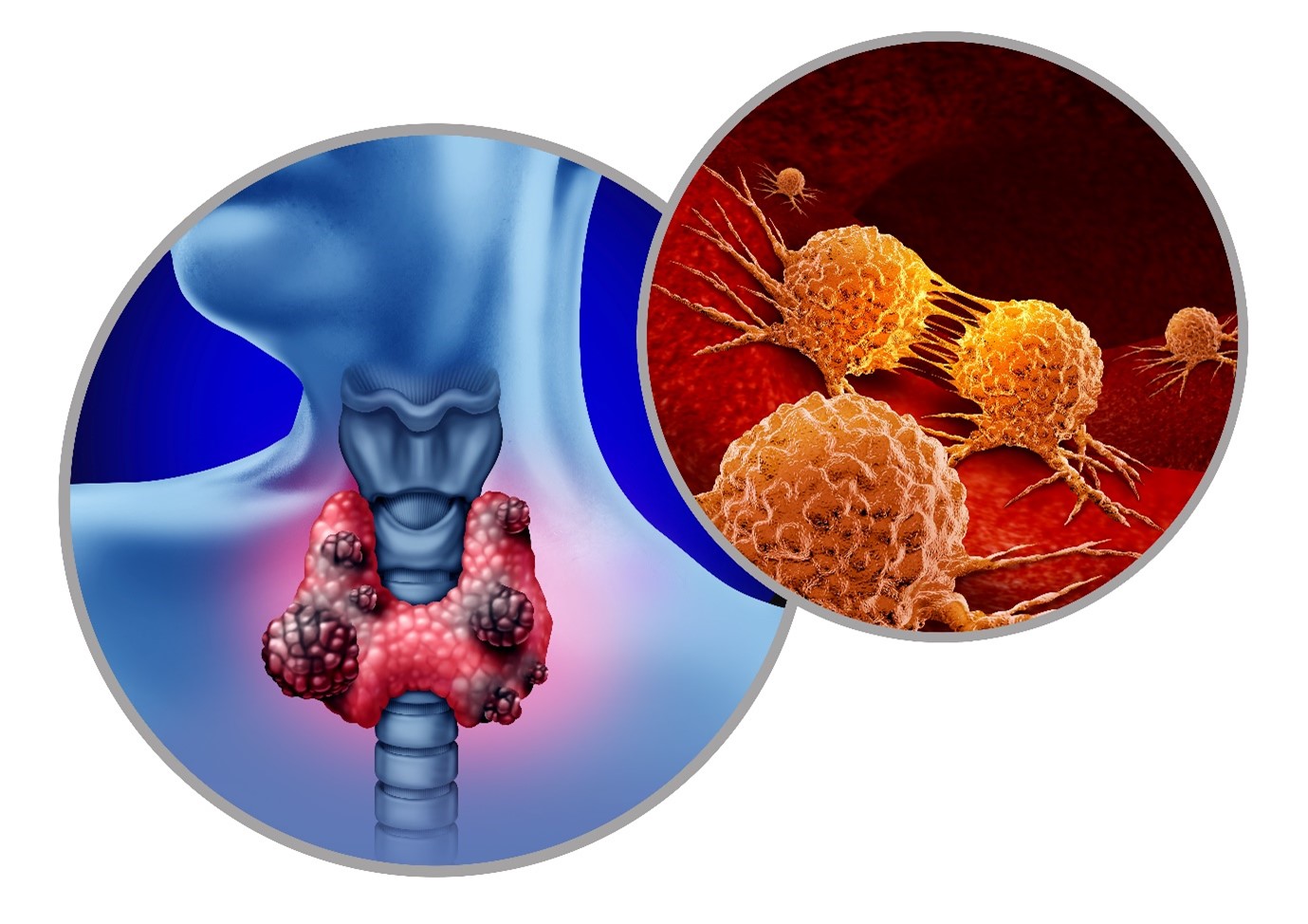What is Thyroid Cancer?
Thyroid cancer develops in the thyroid, a small, butterfly-shaped gland at the base of the neck. This gland produces thyroid hormones that regulate
- Metabolism
- Temperature
- Blood pressure
- Heart rate.
Thyroid cancer is an endocrine cancer that’s highly treatable and has an excellent cure rate, particularly in its early stages.
What are the Types of Thyroid Cancer?
Thyroid cancer is categorized into different types depending on the cells from which it develops.
- Papillary: The most common type, accounting for 80% of cases. It grows slowly and responds well to treatment.
- Follicular: Comprising 15% of cases, it’s more likely to spread to bones or organs.
- Medullary: About 2% of thyroid cancers. It may be linked to genetic mutations.
- Anaplastic: A rare, aggressive form that is challenging to treat and spreads quickly.
What Are the Symptoms and Causes?
Symptoms of thyroid cancer may include:
- A lump or nodule in the neck
- Difficulty swallowing or breathing
- Hoarseness or voice changes
- Swollen lymph nodes
Signs of Metastasis (when cancer spreads) include:
- Fatigue
- Weight loss
- Loss of appetite
What are the Causes and Risk Factors?
While the exact cause is unknown, factors like
- Radiation exposure
- Family history of thyroid disease or cancer
- Thyroiditis
- Genetic mutations
can increase risk.
Gender and age are also significant factors, Women are more prone to developing thyroid cancer compared to men.
How is Thyroid Cancer Diagnosed and Treated?
Thyroid cancer is diagnosed through:
- Blood tests to check thyroid function.
- Biopsy using fine-needle aspiration to test thyroid cells for cancer.
- Imaging scans like CT, PET, and ultrasound.
Treatment options:
- Surgery: Surgical removal of part or the entire thyroid gland.
- Radioiodine Therapy: Destroys cancer cells with radioactive iodine.
- Radiation Therapy: Uses external beams to target tumours.
- Hormone Therapy: Blocks hormone production to prevent cancer recurrence.
What is the Outlook for Thyroid Cancer?
The prognosis for thyroid cancer is generally good, especially for papillary and follicular types, which have high survival rates. The survival rate for localized papillary thyroid cancer is almost 100%, and around 80% even for metastatic cases. Medullary and anaplastic cancers have lower survival rates, but early detection and treatment improve outcomes.
If you or a loved one is experiencing symptoms of thyroid cancer, don’t wait—seek expert care today at OncoHeal Cancer Centre. Our specialists are here to guide you through diagnosis and treatment options. Schedule a consultation now!


